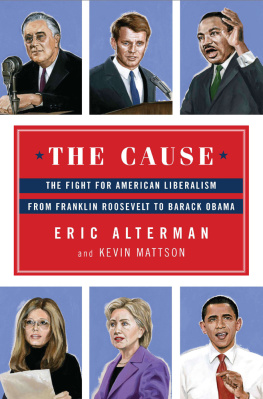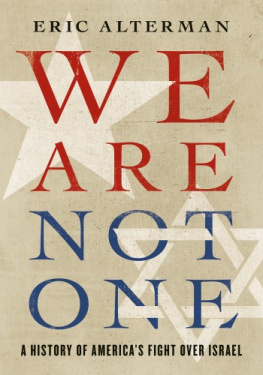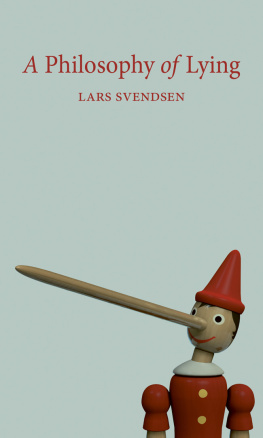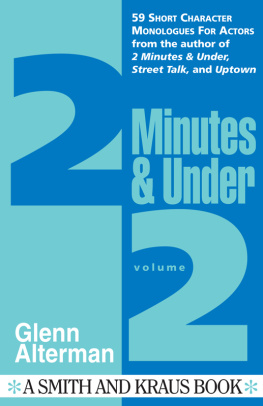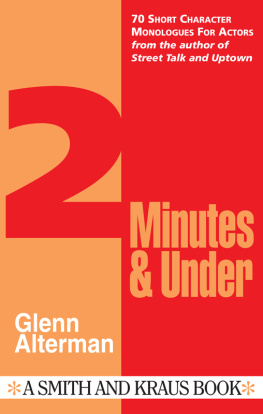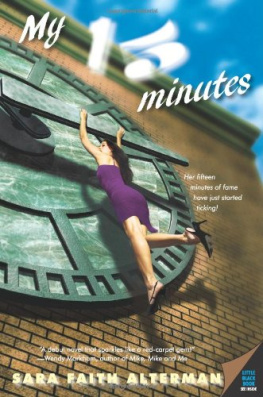Eric Alterman - Lying in State: Why Presidents Lie -- And Why Trump Is Worse
Here you can read online Eric Alterman - Lying in State: Why Presidents Lie -- And Why Trump Is Worse full text of the book (entire story) in english for free. Download pdf and epub, get meaning, cover and reviews about this ebook. year: 2020, publisher: Basic Books, genre: History. Description of the work, (preface) as well as reviews are available. Best literature library LitArk.com created for fans of good reading and offers a wide selection of genres:
Romance novel
Science fiction
Adventure
Detective
Science
History
Home and family
Prose
Art
Politics
Computer
Non-fiction
Religion
Business
Children
Humor
Choose a favorite category and find really read worthwhile books. Enjoy immersion in the world of imagination, feel the emotions of the characters or learn something new for yourself, make an fascinating discovery.

- Book:Lying in State: Why Presidents Lie -- And Why Trump Is Worse
- Author:
- Publisher:Basic Books
- Genre:
- Year:2020
- Rating:4 / 5
- Favourites:Add to favourites
- Your mark:
- 80
- 1
- 2
- 3
- 4
- 5
Lying in State: Why Presidents Lie -- And Why Trump Is Worse: summary, description and annotation
We offer to read an annotation, description, summary or preface (depends on what the author of the book "Lying in State: Why Presidents Lie -- And Why Trump Is Worse" wrote himself). If you haven't found the necessary information about the book — write in the comments, we will try to find it.
Lying in State: Why Presidents Lie -- And Why Trump Is Worse — read online for free the complete book (whole text) full work
Below is the text of the book, divided by pages. System saving the place of the last page read, allows you to conveniently read the book "Lying in State: Why Presidents Lie -- And Why Trump Is Worse" online for free, without having to search again every time where you left off. Put a bookmark, and you can go to the page where you finished reading at any time.
Font size:
Interval:
Bookmark:
Inequality and One City: Bill de Blasio and the New York Experiment, Year One
The Cause: The Fight for American Liberalism from Franklin Roosevelt to Barack Obama
Kabuki Democracy: The System vs. Barack Obama
Why Were Liberals: A Political Handbook for Post-Bush America
When Presidents Lie: A History of Official Deception and Its Consequences
The Book on Bush: How George W. (Mis)leads America
What Liberal Media? The Truth About Bias and the News
It Aint No Sin to Be Glad Youre Alive: The Promise of Bruce Springsteen
Who Speaks for America? Why Democracy Matters in Foreign Policy
Sound and Fury: The Washington Punditocracy and the Collapse of American Politics
Copyright 2020 by Eric Alterman
Cover design by Chin-Yee Lai
Cover image JTSorrell / Getty Images
Cover copyright 2020 Hachette Book Group, Inc.
Hachette Book Group supports the right to free expression and the value of copyright. The purpose of copyright is to encourage writers and artists to produce the creative works that enrich our culture.
The scanning, uploading, and distribution of this book without permission is a theft of the authors intellectual property. If you would like permission to use material from the book (other than for review purposes), please contact permissions@hbgusa.com. Thank you for your support of the authors rights.
Basic Books
Hachette Book Group
1290 Avenue of the Americas, New York, NY 10104
www.basicbooks.com
First Edition: August 2020
Published by Basic Books, an imprint of Perseus Books, LLC, a subsidiary of Hachette Book Group, Inc. The Basic Books name and logo is a trademark of the Hachette Book Group.
The Hachette Speakers Bureau provides a wide range of authors for speaking events. To find out more, go to www.hachettespeakersbureau.com or call (866) 376-6591.
The publisher is not responsible for websites (or their content) that are not owned by the publisher.
Library of Congress Cataloging-in-Publication Data
Names: Alterman, Eric, author.
Title: Lying in state: why presidents lieand why Trump is worse / Eric Alterman.
Other titles: Why presidents lieand why Trump is worse
Description: First edition. | New York, NY: Basic Books, 2020. | Includes bibliographical references and index.
Identifiers: LCCN 2020008737 | ISBN 9781541616820 (hardcover) | ISBN 9781541616813 (ebook)
Subjects: LCSH: PresidentsUnited StatesHistory. | Truthfulness and falsehoodPolitical aspectsUnited StatesHistory. | United StatesPolitics and government. | Political ethicsUnited States.
Classification: LCC E176.1 .A628 2020 | DDC 177/.30973dc23
LC record available at https://lccn.loc.gov/2020008737
ISBNs: 978-1-5416-1682-0 (hardcover), 978-1-5416-1681-3 (e-book)
E3-20200708-JV-NF-ORI
To Laura Hercher, my shelter from the storm, with love, gratitude and admiration. (And most of all, alas amazement.)
Thats the thing about lies, right? Individually, they dont amount to much. But you never know how many others youll need to tell to protect that first one. And damned if they dont add up. Over time they all get tangled up, until one day you realize it isnt even the lies themselves that matter, its that somehow lying has become your default mode and the person you lie to most is yourself.
R ICHARD R USSO , Chances Are (2019)
My understanding of the meaning of the word lie begins with the Augustinian argument that a lie consists in speaking a falsehood with the intention of deceiving. But because a president is more than just an individual, our definition must be considerably more expansive. A presidential lie takes place when the president or someone with the authority to speak for the president seeks to purposely mislead the country about a matter of political significance. The president can remain silent while his subordinates lie for him. He can censor the truth or impede the means to discover it. In my judgment, the only significant criterion is whether the deception itself, however operationally undertaken, is purposeful. If it was accidental or based on ignorance or a misunderstanding, it can be corrected and therefore should be.
One reason journalists often offer for eschewing the word lie when writing or talking about presidential lies is their inability to discern the speakers intent. In this book, however, I am less interested in intent than responsibility. If it was the presidents professional responsibility to know the truth about something and he did not bother to learn it, or he and his subordinates purposely avoided sharing information in order to establish plausible deniability, I still call it a lie.
In the pages that follow, I reject the excuses often offered for the kinds of deceptions Ive just described, such as that the president was disengaged, confused, or distracted; that God told him; or that hes just an unbelievable narcissist. I also consider censorship, when it is purposely deployed to misinform, to count as a lie. This is not to condemn censorship per se. Societies cannot protect themselves without it. The Constitution, as various Supreme Court justices have observed (albeit for competing arguments), is not a suicide pact. But the power to prevent speech is awfully easy to abuse for personal and political gain, and when this happens, it functions as a lie. Secrecy is also an a priori necessity of governance, especially in wartime. But it, too, can easily bleed into dishonesty when abused, and abuse tends to its natural path when presidents are given the power to determine what citizens should and should not know. Under certain circumstances, therefore, as we shall see, it is possible for a president or his representative to lie by silencing others, and by saying nothing at all.
I hardly need to make the argument that Donald Trump is a liar. Neither is it news that previous presidents have also lied quite a bit. At the same time, the depth and breadth of Trumps dishonesty is something decidedly new. As the MSNBC host Chris Hayes wrote in a New York Times book review just eighteen months after Trumps inauguration: The president is a liar. He lies about matters of the utmost consequence (nuclear diplomacy) and about the most trivial (his golf game). He lies about things you can see with your own eyes. He lies about things he said just moments ago. He lies the way a woodpecker attacks a tree: compulsively, insistently, instinctively. He lies until your temples throb. He lies until you want to submerge your head in a bucket of ice and pray for release.
President Trumps ability to lie without concern for credibility is both shocking and gruesomely impressive. In one three-day period in April 2019, Trump managed to make 171 false or misleading claims, according to the Washington Post fact-checking team. During a telephone interview with the Fox News talk-show host Sean Hannity, he uttered 45 falsehoods in 45 minutes. It is fair to call someone who lies that frequently and shamelessly pathological. So yes, America has a pathological liar for its president, and literally nothing he says can be taken at face value. How did such a thing become possible? How could the worlds most powerful nation, and its oldest democratic republic, allow itself to be led by such a person? And what are the implications of allowing this liar to not only set the policies of the United States but also dominate its political culture to a degree that is no less unprecedented than his dishonesty?
For so common a human occurrence, lying can be quite complicated, both morally and practically. We teach our children that lying is always wrong, but we dont really mean it. As a young child in Hebrew school, I was taught to admire Jacob for tricking his father, Isaac, into giving the birthright blessing to him rather than its rightful recipient, his older brother, Esau.
Font size:
Interval:
Bookmark:
Similar books «Lying in State: Why Presidents Lie -- And Why Trump Is Worse»
Look at similar books to Lying in State: Why Presidents Lie -- And Why Trump Is Worse. We have selected literature similar in name and meaning in the hope of providing readers with more options to find new, interesting, not yet read works.
Discussion, reviews of the book Lying in State: Why Presidents Lie -- And Why Trump Is Worse and just readers' own opinions. Leave your comments, write what you think about the work, its meaning or the main characters. Specify what exactly you liked and what you didn't like, and why you think so.

